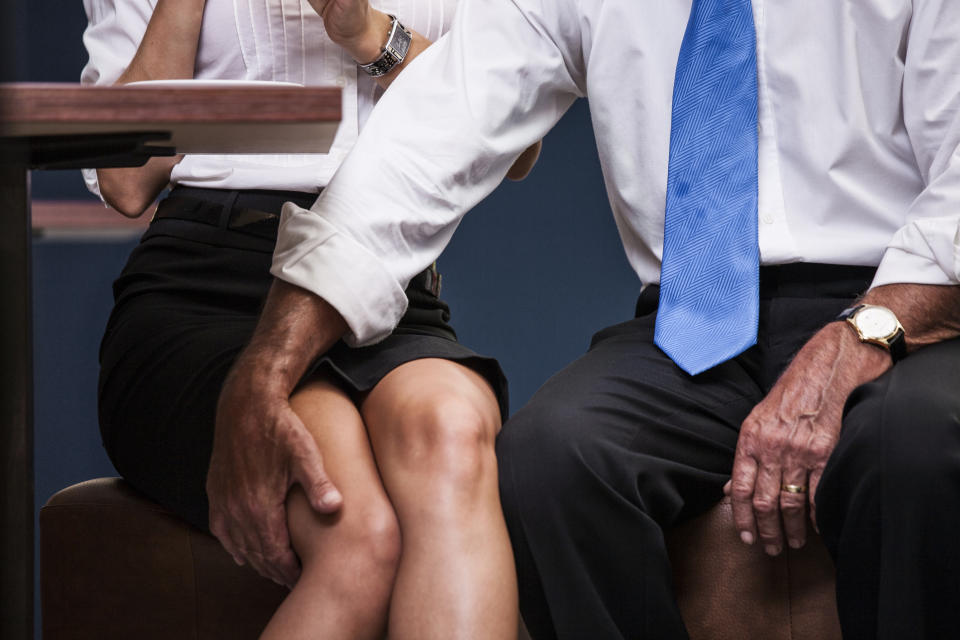The problem with the #MeToo hashtag

If you’ve been on social media recently, you’ve most likely come across the #MeToo hashtag.
What started on Sunday evening as a call to action by actress Alyssa Milano in response to Harvey Weinstein has since gone viral with famous – and non-celebrity – women alike sharing their personal experiences with gendered sexual assault.
Weinstein is being publicly called out for sexually assaulting multiple women. Estranged by his wife and children, he has also been removed from the Academy of Motion Picture Arts and Sciences. As of Monday, Twitter confirmed that #MeToo had been tweeted more than a half a million times. This means more than a half million women have shared moments they were made uncomfortable by men, whether it was being drunkenly groped in a club, leered at across a conference room table, or raped by someone with authority.
ALSO SEE: Women are sharing their assault stories with the #MeToo hashtag
While we can all hopefully agree the campaign has assisted in raising awareness of gendered sexual assault, the main goal has been to act as a wake up call for men – but has it been effective? Among the many “Me Too”s on your timeline, it’s likely you’ve seen men responding with “I see you and believe you,” — but it begs more attention than that. Awareness is great but now change needs to happen by the only people who can physically change the situation: men.
For some sexual assault survivors, sharing their story can be conducive to healing and overcoming that experience, but it shouldn’t be up to women to carry the conversation. Of course there’s an aspect of solidarity and empowerment when it comes to women sharing their stories — that’s not up for debate. But the problem with Me Too is that it still leaves it up to women to tell their experiences to try to almost convince men that sexual assault is an issue. Men can contribute in bigger ways than simply liking or retweeting the hashtag. Men can contribute by becoming stronger allies and taking responsibility, standing up for women in situations where they have been previously passive.
Huffington Post writer Angelina Chapin may have said it best. Forcing men to understand that most women have been assaulted at some point in their life is the awareness piece of this campaign. The action men need to employ, however, is actually quite simple.
“Men don’t need to understand that every woman has been sexually demeaned or violated. They need to acknowledge something much more basic: that women are the victims of these stories,” she wrote.
In our culture, sexual assault is something that is considered primarily a women’s issue. This could be resolved if men were forced to acknowledge their predatory role in the matter. Rather than teach men that it is not OK to catcall on the street, force a hug or comment on women’s appearance (no matter how she’s dressed), we tell women to close their legs, stop exposing too much skin and always travel in groups. Instead of correcting the obvious issue, women are expected to carry the responsibility in sexual assault situations, being instructed to reduce themselves and their appearance to decrease sexual advances and the male gaze.
Change has to come from the source. And while men should play the leading role when it comes to changing the dialogue around these sexual assault statistics, they are often removed from the conversation. While it may seem minor, we can all make the change of placing responsibility back onto men in these incidences. Rather than statistically reporting how many women were raped or assaulted last year, we can change the dialogue to report how many men raped or assaulted women. By excluding men from the statistics, we are essentially extrapolating them from the conversation, passively disengaging them and removing any responsibility they previously held in the situation.
We need to create an environment where women can discuss sexual assault and consent through their “Me Too” with men acknowledging and correcting their role whether they commit the assault or allow it to happen. The campaign has helped reveal how vast this issue is — and the women who have shared their stories are doing something incredibly powerful — but now it’s time for men to step in and breed solutions to stop the actions that somehow make sexual assault acceptable.
Once men begin to acknowledge their role, they can make the appropriate changes to combat our misogynistic society, full stop.
Let us know what you think by commenting below and tweeting @YahooStyleCA!
Follow us on Twitter and Instagram.


